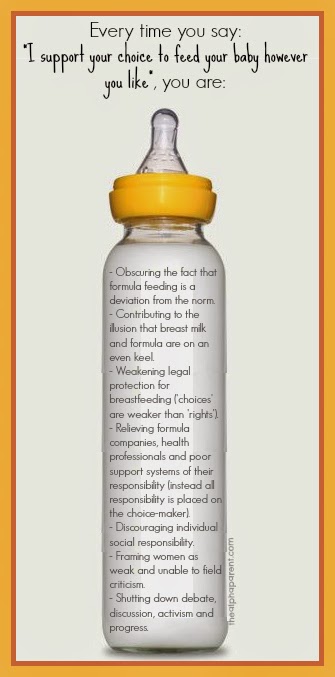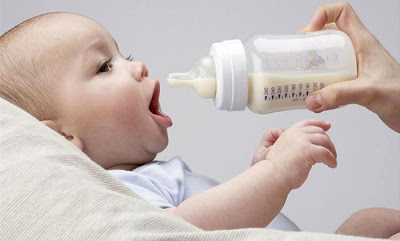
I would like to share with you, a rant I found on Mumsnet today. It was titled, “Women are Stupid”:
“Elsewhere, there is a complaint about being unsupported when breastfeeding. This is a feminist issue – and the fault lies fairly and squarely at the feet of women.
I am astounded that after the battles fought in the seventies and eighties, women have allowed such regression.
Look how stupid women are today. They have their bodies surgically adapted to men’s fantasies – breasts enlarged, labia trimmed – they bleach their hair, tattoo their eyeliner and lipstick and have themselves spray-painted. They remove their pubic hair so they look like children for their (multiple) partners. If you read about it in a book on social anthropology you’d be horrified at the ‘oppression’ of women. But women think they are choosing this!
Then they say ‘oh, its not fair, no-one supports me when i’m breastfeeding’. Too damn right they don’t. Because you and your compatriots have allowed everyone to see you as barbie dolls to use and abuse. They don’t want to see you being women, being grown up, feeding your babies, that spoils the fantasy. You created this; live with it.
When you’ve finished screaming at me about your ‘rights’ to have your mons pubis decorated with fake jewels and to have your isabella piercing, organise yourselves.
Wash your faces, let the fake tan fade, cut off your dyed hair and let it grow back naturally, so your babies can recognise the human being their genetic memory was expecting to find here. Stay free from chemicals that mask your natural odours, so your babies can recognise you by smell. If people are pressurising you to ‘go back to work’ say, ‘certainly. When this baby chooses to stop breastfeeding’. That gives you four to five years at home, maybe longer, when you are doing something no-one else can – being your babies’ mothers.”
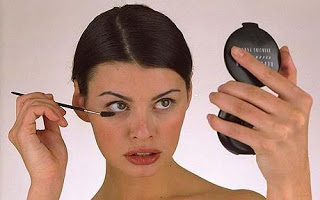
I believe a significant part of Patriarchal culture is the brainwashing of women into believing they are making ‘free choice’. However in reality, all these supposedly free choices are merely parroted human responses to decades of social conditioning. Take applying makeup for example. The common mantra is that women apply makeup for themselves, yet 90 per cent of British women won’t leave the house without applying it (Michaels 2012). What does ‘doing it for ourselves’ actually mean? One Mumsnetter put it wisely when she suggested, “to me it means we have so inculcated the norms of the male fantasy society that we no longer have our own notion of a desirable self.”
Could the same theory be applied to ‘choosing’ formula? Common reasons women give for rejecting breastfeeding include:
- they don’t want their breasts to sag.
- they see breasts as exclusively sexual.
- their husband is uncomfortable with breastfeeding.
- they are uncomfortable with breastfeeding.
- they don’t want to breastfeed in public.
- they want to ‘get their body back’.
Much of this discomfort springs from the fact that breasts, and in particular breastfeeding, disrupt the border between motherhood and sexuality. Many women cannot cope with the dual-functionality of their breasts. When a woman is desperate to “get her body back,” to return to “sexy,” to “be her husband’s again” she is consciously or subconsciously trying to appease the notion that her breasts are the property of the male gaze and have to be “good enough” for men again. She is buying into the idea that one cannot be maternal (madonna) and sexual (whore) at the same time.
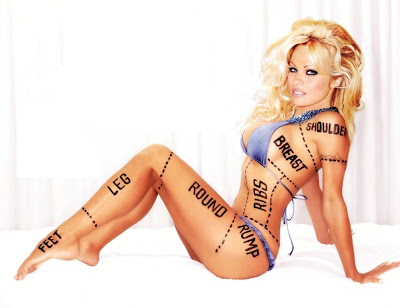
Nurtured Child alluded to this in her blog when she wrote that, “In trying to conform and be accepted into a patriarchal society, women have learned to ignore their instincts for mothering. Those who are still able to hear their instincts are not supported in trying to follow them. Why are we as women so desperate to ignore our own biology in order to fit into an outdated model of what society should be?”
A choice laced with fear
She has a good point. The choice to formula feed is made in a climate in which women harbour mistrust, disdain, and even fear of their bodies. Like those who dare not leave the house without camouflaging their faces with makeup, when feeding their babies many women believe nature needs a constant helping hand. As women we seldom have confidence in our bare naked selves. Our natural state is to be is feared, seen as faulty and insufficient.
On the topic of rejecting nature, someone called ‘Sam’ left a fascinating comment on one of my previous articles (here). Her comment is worth reproducing in its entirety:
“Breastfeeding is not a “choice”. You can “choose” NOT to breastfeed, but breastfeeding is just the normal thing to do next, once the baby is born. It’s like saying you “choose” to placenta-feed. Nope, while the baby is in utero your body just gets on with it and the baby is nourished. There is no “decision” involved. Then the baby comes out and breastfeeding is a continuation of that. You can “choose” to disrupt that continuum. That is your right. Let’s just be honest about it and call it what it is.”
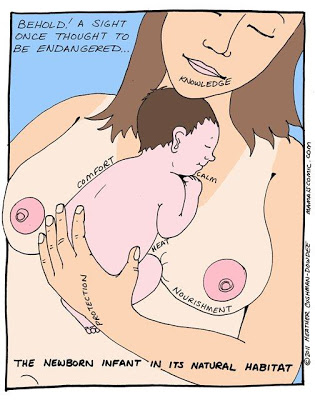
Her placenta analogy highlights the undeniable fact that birth and breastfeeding are designed to exist on a continuum, and the body of the mother during pregnancy and breastfeeding is the natural ‘habitat’ of the baby. No amount of technology will improve on this biologically determined pattern. If we see formula feeding for what it really is – a deviation from the norm, rather than a ‘choice’ – then we can bust the myth that formula feeding is somehow feminist; that brandishing a bottle is liberating.
Rights Vs Choices
In reality, breastfeeding is a maternal and child health imperative and reproductive right. However, rather than being respected as a right, our culture frames breastfeeding as a consumerist and lifestyle choice.The Feminist Breeder has rightly noted that:
“When a biological function is viewed as a ‘choice’ being made by an individual, society easily decides that it has no vested interest in supporting that ‘choice.’ If society has no vested interest in supporting that choice, then it’s no wonder a Judge recently ruled that employers can fire breastfeeding mothers. The judge thinks it was the mother’s “choice” and the company was not obligated to support it.”
Framing breastfeeding as a ‘choice’ weakens legal protection for breastfeeding families. A lot of women are economically forced into employment in order to feed their families yet are legitimately denied pumping breaks. In this set-up, breastfeeding becomes no more than a privilege disguised as a choice.
How informed is your ‘choice’?
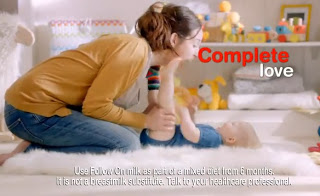
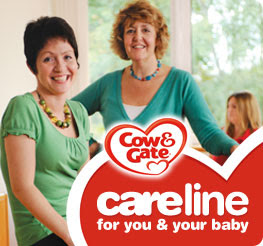
What about Feminism?
Formula companies even leach off feminist notions of liberty, appropriating the discourse of personal choice and female empowerment. A noteworthy example is Elisabeth Badinter who wrote a provocative book called ‘The Conflict’. In her book, Badinter argued that if women were to stop breastfeeding and give their babies formula, their economic and social status would rise. However unbeknown to her readers, Badinter holds a controlling stake in and is the board chair of the p.r. and ad agency Publicis, which represents formula makers Nestle, Similac and Enfamil.
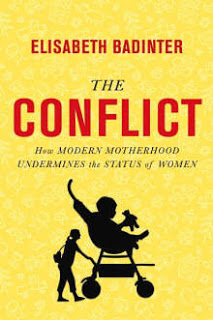
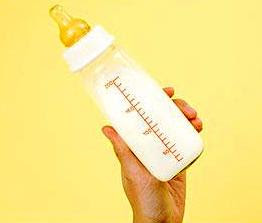
Yes, feminism is about choice but one needs to be honest about the fact that feminism, and indeed parenting, is also about making certain types of choices, whether or not we like to admit it. Individual freedom is to be encouraged – but with one very important caveat – so long as it does not bring harm to others. This is reflected in law. We have the right to free speech, but not hate speech. We have the right to smoke, but not to force others to smoke passively. However during infancy the issue is less defined; a woman’s rights become tied to that of her child. The dialogue of “choice” fails to take in to account those who actually have the most at stake: the child, who may feel the effect of the mother’s decision for the rest of their lives.
Feminism is not about reassuring individual women that they haven’t chosen badly. If you choose to hand over your control to medical professionals, to line the pockets of men, to surrender your baby’s health to the will of corporations who have no vested interest in your baby’s well-being, to contribute to the restriction of women’s breasts to the sexual domain, to increase your own, and your baby’s risk of cancer and obesity – according to your logic that means that the formula companies, the poorly informed health professionals and the sabotaging family members aren’t misogynistic, because anything you as a woman choose to do is feminist. In fact, apparently the real misogynist is the feminist who’s trying to tell you that formula feeding isn’t optimum.
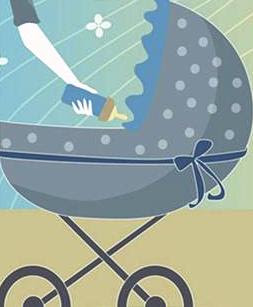
Making the Personal Political
Those who champion ‘choice’ in infant feeding (the “It’s my choice and no one’s business” brigade) are often motivated by a fear of politics. They hold a worldview that does not challenge the status quo. Instead, any and all choices women make are seen as equally valid, cherished, and beyond judgement. This rhetoric of ‘choice’ in infant feeding is troublingly tied to and reflective of trends toward hyper-individualism and hyper-consumerism (unsurprising considering its appeal in American and British society); the choice rhetoric tends to neglect the *contexts* (political, institutional, economical) of actual choices; it relieves women of the responsibility of considering the broader implications of their choices (by pretending that individual choices have no social consequences). It’s about making every woman feel good about whatever she does, and treating women like delicate wallflowers who can’t be criticized. In short, the ‘choice’ rhetoric enables mothers to sidestep the difficulties of making the personal political: i.e. making judgements and demanding change of health professionals, formula corporations, the media, employers, friends and family. Yet, as I explained in my article, “Why the Way You Feed Your Baby is MY Business”, infant feeding is inevitably, inherently and unavoidably political.
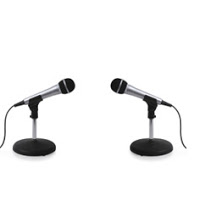
Whatever aspects of being a formula feeder work for you, enjoy them. But don’t fool yourself that you’re doing so of your own unconstrained free will. Your choices are being made in the context of a bottle-feeding culture. You may be doing what you love, but you’re also doing what you’re told. Lactivists who want to fight for your ability to reject patriarchal standards of what is ‘decent’ breast exposure or who want to ban the ability of formula companies to corrupt health professionals – are trying to give you more genuine, valid, supported options.
Next time you find yourself muttering the hyper-clichéd words, “I support a woman’s choice to feed her baby however she likes”, stop and think:
